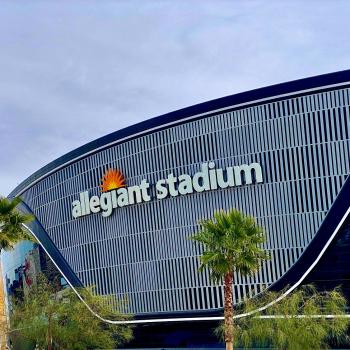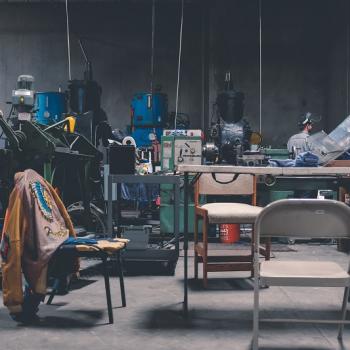Q: With Munger recently celebrating its sixth year, what does the congregation and the surrounding neighborhood look and feel like today?
Our average attendance in 2017 is just over 1,000. We have eight full-time staff members, but we also draw on the services of the staff of our parent church, Highland Park United Methodist Church.
Our style of worship would fall under the “contemporary” category, since we use rock-style worship and video and dress casually. Our building has a traditional feel, so our style will seem much more traditional than the typical megachurch in Dallas.
Our neighborhood is gentrifying, with extremely expensive home values, but there are still large pockets of poverty — it’s a mix.
Q: How do you create the space where wealthy and poor congregants can worship together and share a common life?
It’s not easy, because we all seek affinity with other people who are like us. So you have to be intentional to reach out over those differences. But what I have found is that the most important thing for a church is to bring people into fellowship and then train them to live like Christ.
This is done in three ways: teaching people to read Scripture, teaching people to pray and connecting people together.
In 2017, we’re reading the Bible together as a congregation, using the One Year Bible. We handed out thousands of One Year Bibles on Christmas Eve. Everything we’re doing in 2017 is helping people read the Bible. I’m preaching through the Scriptures, and we have a daily blog and a weekly podcast.
With a diverse congregation, what doesn’t work, frankly, is when either the rich or the poor come and only consume. What changes people is when they come to feel like they actually play a role in the community. I’ve come to believe that our mission, for both the low-income and the wealthy people, is to bring them into community and make them feel like they belong.
When we actually become friends with each other, then it is often in the small, unplanned, organic ways that people can begin to meet one another’s needs.
For example, we have a guy who can’t read who sits in our coffee bar every Sunday and watches the sermon as it’s broadcast around our campus on the various closed-circuit TVs. As he’s there every Sunday, he is joined by a software salesman. They’ve become friends.
The guy who can’t read felt comfortable enough to start attending my Wednesday Bible study in the evenings, knowing that his friends were with him and could help him follow along. Then, before Christmas, this same guy volunteered to help with our annual Christmas store for low-income families. This was huge. Now he knows that he has something to contribute, though he might not have much money or education. He knows that Jesus can use him, that he has something to offer for the kingdom.
Q: How do you remember your collective story while remaining open to the Spirit’s movement in your midst?
That’s something I think about a lot. One thing you do is just tell the same story over and over.
So every year on our birthday, we talk about what we’re about as a congregation: we’re about trying to bless our neighborhood and pull people into fellowship with the Lord.
“We’re a church for our neighborhood” — I say that all the time.
I always like to say you can’t be a great small restaurant in Dallas, or you can’t be a great unbusy restaurant in Dallas. If you’re great, people are going to want to come to your restaurant — and if they aren’t coming, you’ll stop being busy.
So you might be able to be a great small church in a dying former mining town, perhaps, but it is impossible to be a great small church in a major metropolitan area. If the church is a place where people experience the power of God, they’re going to be voicing that to their friends.
We exist for the world, not for ourselves.
Q: With that vision in view, what is the animating story of your life together that you keep retelling?
I think the animating story is that the harvest is plentiful and the laborers are few.
Every dying church in America has a community garden. Every dying church in America has a co-working space. What do I mean by that? I have no problem with community gardens; a garden is a beautiful thing. And I don’t have any problem with co-working spaces. But Jesus didn’t tell us to start a community garden, and he didn’t tell us to start co-working spaces; he told us to make disciples. That’s literally the mission of the church.
The problem is not the gardens. I’m being provocative to make a point. The problem is that we often want to substitute secondary and tertiary concerns for the primary concern of discipleship.
We don’t actually disciple our people. We don’t teach them about the Bible; we don’t actually do the core practices of the faith. So there are dying Methodist churches in every ZIP code in America that have a few old people coming to them, and they say, “We need to reach out to young people, so let’s start a community garden.”
One of the ways I know God is at work at Munger is because 45 percent of our membership did not come from a previous church affiliation. But why is that? I think it’s because we’re just trying to do what the Lord told us to do, which is preach the gospel and try to make disciples in our own very halting way.
Our story is a story of actually believing that Jesus wants to draw people to himself and that the Holy Spirit is actually at work. The bitter irony of the dying mainline churches in America is that they are all moving away from orthodox Christianity. And the more they move away, the faster they die.
Q: What time horizons do you and your community’s leadership use to make decisions?
On the one hand, I’m super-motivated to think about building a church that’ll be here after I’m dead and my kids are dead. I think we need to have a very long view, a 100-year view.
Everything we have in life, without exception, has been given to us by the faithful stewardship of the people who have come before us or destroyed by the lack of stewardship of the people who have come before us. All of our art, all of our music, all of our universities, our hospitals, our knowledge.
Over my dead body are we not going to leave this place better than when we got it. Even institutionally, I want to leave buildings and the land as a gift so there’s a thriving church community here 100 years from now.
On the flip side, like anybody else, I don’t know how long I have as a pastor or before the Lord calls me home. And so I’m also just deciding that the most important thing for me to do is try to be a faithful pastor now and try to help disciple our people now. If that means God gives me two years, then we’ll try to see how much further we can be in two years than we are now.












